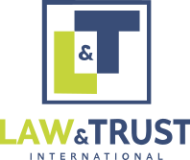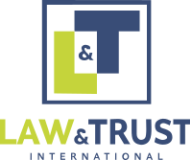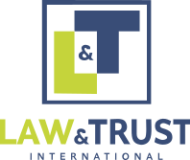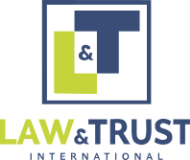Necessary tax precedent for business or gift from the Supreme court
News:
Date added: 24.05.2016Recently, the Supreme Court of the Russian Federation announced the most important decision that clarified such an urgent issue for private entrepreneurs regarding the withholding tax on interest on a loan between related enterprises in the event that they were transferred into dividends.
The process around the New Tobacco Company made a lot of noise, because for almost two years it had been trying to cancel the controversial decision about additional taxation, and in March, the panel of the Supreme Court of the Russian Federation finally made such a long-awaited decision. Nikita Shcherbakov, who represents one respectable lawyer's firm, states that this is a record precedent that defended the interests of business. The uniqueness of this case also lies in the fact that earlier judicial practice at such a high level has always taken a different side, especially when there is also a foreign person among the subjects. But the Federal Tax Service has so far refused to comment on the case, citing the fact that the entire process is not yet completed.
Let's consider what the problem was. The new tobacco company who is part of a large tobacco conglomerate appealed to the Moscow Arbitration Court to recognize the decision as having no legal force, where the interregional inspection of the Federal Tax Service for the largest taxpayers that additionally accrued a shortfall due to the company's income tax for 2001 in the form of 79.9 million rubles, and a fee with a fine of 29 million rubles, as well as 80.7 million plus a fine of 37.4 million on tax on the company's income from foreign enterprises for the same period. The main beneficiary of this organization is the firm that is registered in the jurisdiction of Cyprus, and in Russia the owner is CJSC "TK"Megapolis". And based on the decision of the court instance, Megapolis issued loan money from its own loan received from the bank, and not from its main company.
The authorized inspector decided that the amounts that the company paid in the form of interest on the loan can not be attributed to the costs, because the borrower and the creditor were among themselves. It should also be taken into account that the borrower firm did not have its own capital, and the Cyprus company owned most of it.
The tax authorities have made a decision and have aligned this debt with a thin capitalization. The essence of thin capitalization is that if the amount of loans received from the creditor is several times greater than the amount of the net assets of the borrower, then the payments for loans are reorganized into dividends, and a tax rate will already be drawn up for them. Proceeding from the thin capitalization, the tax authorities want to cut off the source of financial flows from Russian enterprises that pass through loans from foreign enterprises and their Russian structures. It is interesting that these loans are not subject to taxes at all.
Further, the interest that was paid to Megapolis was reclassified to the dividends of the Cyprus company, and the borrower was required to pay a shortfall on the income tax of the foreign organization. The court considered only the last episode of the dispute.
The reason why the Supreme Court took decisions in favour of the private firm, when the courts of other instances, including the appellate court, aligned themselves with the tax authorities are not yet known. The clarification will be contained in the motivational part of the judicial decision, but it has not yet been published.
There is a suggestion that the stumbling block in this situation could be the fact that when the tax authorities notified that the Russian company was forced to pay tax in the form of dividends from accrued interest, which should be deducted to the creditor, this eventually resulted in double taxation.
The RF Tax Code does not provide for a provision that extracts from the creditor's profit those interest that the borrower is obliged to consider as dividends of a foreign company. So, the amount of interest will eventually fall under double taxation. The example of the Supreme Court is also important for the reason that it will now serve as a benchmark for the lower courts. This decision removes uncertainty for business and the Supreme Court put the final point there. In addition, the Ministry of Finance also recognized that taxpayers are not required to pay tax on interest payments, which were re-classified as dividends when loans were made between two Russian enterprises.
As for the thin capitalization, the tax advisers confirm that, unfortunately, there is generally a negative court practice.
Previously, courts of law, with rare exceptions, always made decisions towards the tax authorities, ignoring the interests of business. Now, tax authorities will more often use different measures to obtain data from tax authorities of other states in order to confirm the presence of a controlled foreign company. The courts, in turn, more actively take into account all sorts of information from open sources, including analyzing the reports of international holdings.
As for the well-known cases of thin capitalization, here, first of all, the case of "Severny Kuzbass" is recalled. This company was granted with a loan by the company, which was its shareholder, “Severstal Resurs”. When ArcelorMittal acquired Severstal Kuzbass, the rights to the loan were transferred to a foreign company. The tax authority ruled that the company unlawfully reduced its interest on loans, and since the loan itself exceeded the threshold of net assets that was allowed, the tax authorities charged an additional 159 million rubles as income tax and penalty.
As for the enterprise "Naryanmarneftegaz", then the tax service has charged additional 150 million rubles of tax on the company's income, and a fine for the past several years. By the end of 2007, the firm itself has the debt of one and a half billion dollars. The court supported to the demands of the tax authorities and wrote off the losses of the company at 3.65 billion rubles, which was paid on a loan from a foreign company, and the payments themselves were re-classified as dividends.
It is also necessary to take into account the actual changes in the legislative acts that regulate the conditions for determining thin capitalization. The new rules act as more tightening than the old ones, and come into force on January 1, 2017.
The very rule of thin capitalization will affect the loans of enterprises that directly related to each other. And it will be applied not only to debt obligations between two Russian enterprises, but also obligations when one company acts as a guarantor of another.
If the ultimate goal is to make deductions towards a foreign enterprise and its subjects, the court may decide to recognize as controlled the outstanding debt of a Russian firm for debts to the enterprise, which at first sight is independent of it.
It should be taken into account, if the interest income is not transferred to the parent foreign enterprise, then the debt itself will not be recognized as controlled by the court.
.

















